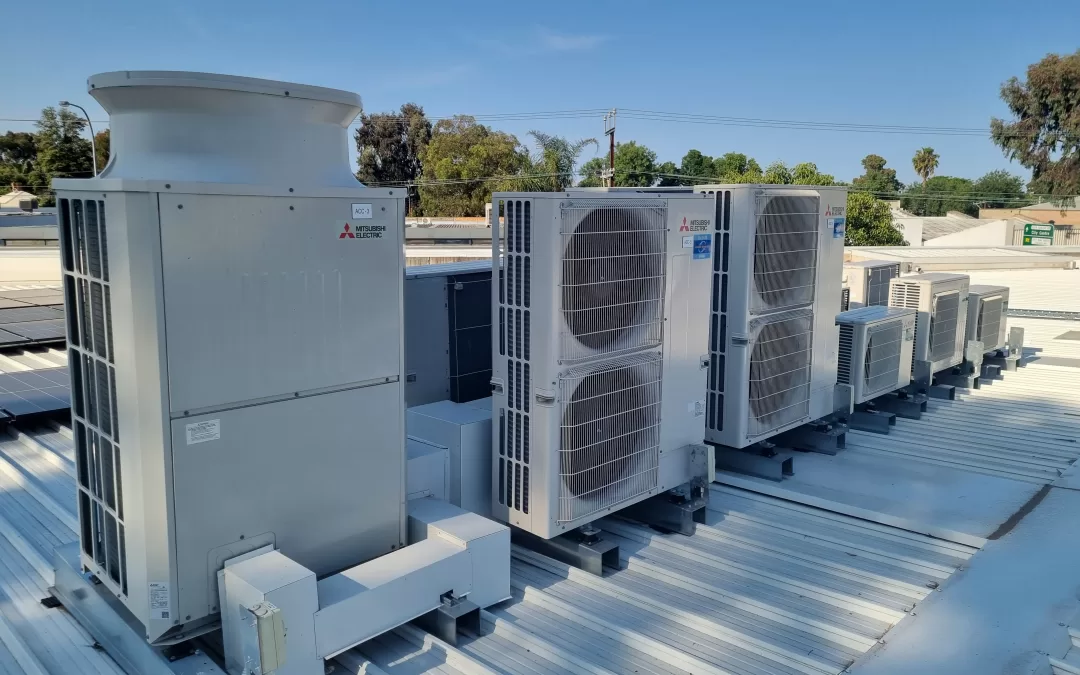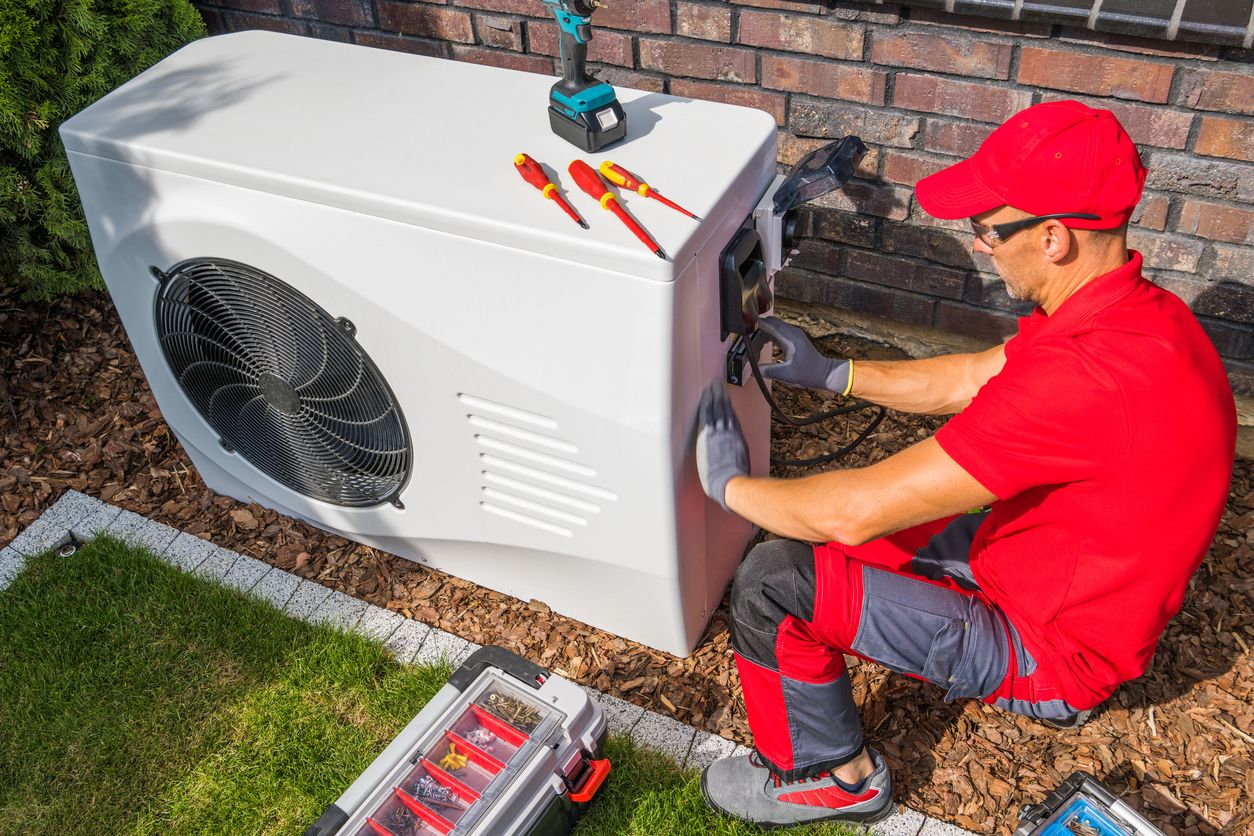Affordable Furnace Installation Services For Every Family And Expectation
Affordable Furnace Installation Services For Every Family And Expectation
Blog Article
Your Overview to Choosing the Right HVAC System for Your Needs
Selecting an appropriate HVAC system is an important decision that can substantially influence convenience and energy efficiency in your home. Furthermore, comprehending the different kinds of systems available and their energy scores can help direct your selection.
Understanding Heating And Cooling System Kind
When selecting a heating and cooling system, it is important to recognize the different types readily available to fulfill your specific demands. The primary classifications of a/c systems include central air systems, ductless mini-split systems, heatpump, and furnace systems.
Central air systems are developed to cool down several spaces using ductwork to disperse conditioned air. They are ideal for larger homes calling for regular temperature level control. Ductless mini-split systems, on the various other hand, provide flexibility and effectiveness, as they permit zoning abilities, enabling specific room temperature level guideline without the demand for ductwork.
Warmth pumps run by transferring warm instead than creating it, making them an energy-efficient choice for both heating & cooling. They are especially reliable in modest climates. Conversely, heater systems utilize burning to produce warmth, using either electrical power, gas, or oil. They are preferred in chillier regions where home heating needs are considerable.
Each system has distinctive advantages and factors to consider, consisting of installment needs, upkeep, and overall expenses. Recognizing these kinds will assist home owners make informed choices based upon their certain needs, climate, and budget plan constraints, inevitably making certain optimum comfort and effectiveness.
Reviewing Power Effectiveness
Power effectiveness is a crucial consider the choice of a HVAC system, as it directly influences both energy prices and environmental sustainability. When evaluating energy performance, numerous metrics and ratings can assist lead your decision. The Seasonal Power Efficiency Ratio (SEER) and the Heating Seasonal Efficiency Variable (HSPF) are crucial signs for a/c systems, representing their efficiency over a regular cooling and home heating period, specifically. Higher SEER and HSPF rankings indicate much better power efficiency, resulting in lowered energy intake.
Additionally, try to find systems that have actually made the ENERGY STAR label. This certification indicates that the tools fulfills strict energy effectiveness standards set by the united state Environmental Protection Company. Think about the system's variable-speed innovation, which allows for more reliable operation by changing the outcome to match demand, additionally improving energy financial savings.
In addition, correct insulation and duct sealing can considerably affect the system's general performance. In summary, choosing an energy-efficient heating and cooling system not only lowers your energy costs but likewise contributes to a much more lasting atmosphere, making it a crucial factor to consider in your buying process.
Assessing System Dimension
Picking the proper size for a HVAC system is critical to making sure optimal efficiency and effectiveness. A small system may struggle to keep desired temperature levels, leading to enhanced deterioration, greater energy usage, and decreased convenience. On the other hand, an extra-large system can cause fast cycling, which not only causes inadequacies yet additionally influences moisture control and air top quality.
To analyze the optimal sizing, it is important to perform a tons estimation, which thinks about factors such as the square video footage of the area, insulation levels, window sizes, and regional environment problems - hvac. This calculation helps identify the British Thermal Units (BTU) required for cooling and heating. Furthermore, it is crucial to represent particular requirements, such as the number of occupants and the presence of heat-generating home appliances

Setup Expenses and Spending Plan
A comprehensive understanding of installment prices is vital for homeowners and companies taking into consideration a brand-new a/c system. The overall expense of installation can differ extensively based upon numerous aspects, consisting of dig this the kind of system, the complexity of setup, and the area of the residential property. Generally, setup prices can range from $3,000 to $10,000, depending on the system's size and performance.
When budgeting for a heating and cooling system, it is important check these guys out to think about not only the first installment expenses yet also any type of additional costs that may emerge, such as ductwork modifications, electrical upgrades, or authorizations. Furthermore, it is advisable to get numerous quotes from certified a/c specialists to make sure competitive prices.
House owners should also consider the possible long-lasting financial savings related to energy-efficient systems. While the ahead of time costs might be higher, energy-efficient versions can cause considerable cost savings on utility expenses with time.

Maintenance and Longevity Considerations

Appropriate upkeep includes regular evaluations, filter replacements, and cleaning of air ducts and coils (furnace installation). Ignoring these tasks can lead to lowered efficiency, raised power expenses, and premature system failing. Homeowners must likewise think about the schedule of solution contracts, which frequently offer scheduled maintenance and concern solution, ensuring that the system stays in peak condition
Durability varies by system type; for instance, well-kept air conditioning units can last 15 to twenty years, while warmth pumps might have a life expectancy of 10 to 15 years. Picking a system with a strong reputation for dependability, in addition to purchasing regular maintenance, can considerably enhance the system's durability. In addition, selecting higher-efficiency versions may lead to long-term savings on power expenses, balancing the initial investment gradually.
Conclusion
To conclude, picking a proper HVAC system requires cautious consideration of different elements, including system kinds, energy effectiveness, and dimension. Reviewing installment costs and lasting maintenance demands is essential for making sure optimum efficiency and cost-effectiveness. Involving with cooling and heating specialists can supply useful insights and customized referrals that align with certain heating and cooling needs. Inevitably, an educated choice will certainly improve comfort and efficiency in household atmospheres while taking full advantage of power cost savings.
Picking an ideal Heating and cooling system is an important choice that can considerably impact convenience and energy performance in your home.Energy effectiveness is an important variable in the option of a Heating and cooling system, as it straight impacts both utility costs and environmental sustainability. The Seasonal Power Performance Proportion (SEER) and the Home Heating Seasonal Performance Factor (HSPF) are important indications for air conditioning systems, representing their performance over a normal cooling and home heating season, specifically. Choosing a system with a strong credibility for dependability, along with investing in routine upkeep, can significantly enhance the system's sturdiness.In final thought, selecting a suitable Cooling and heating system demands mindful consideration of numerous more helpful hints aspects, including system types, energy performance, and size.
Report this page